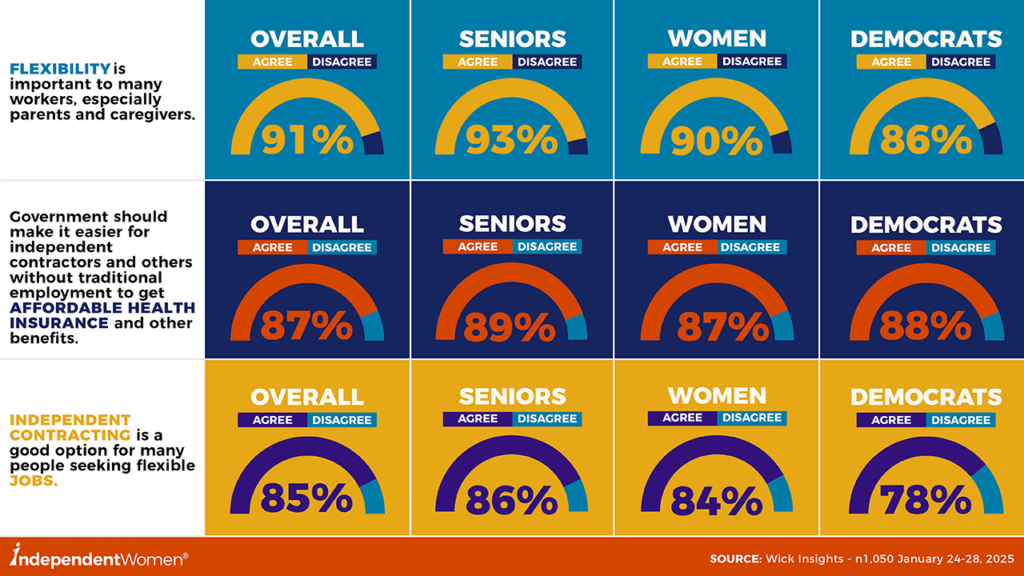Posts tagged unemployment insurance
Labor unions are much stronger in Oregon than nationally
September 2, 2025 // Nearly 300,000 Oregon workers belong to a union, according to federal data, about 1 in 6 workers statewide. Union membership rates have fluctuated since the 1980s but have gradually increased over the past two decades.
Republican senators unveil “portable benefits” bill for gig workers
July 7, 2025 // Sen. Bill Cassidy (R-L.A.) unveiled a bill on Monday that would make it easier for companies to offer benefits to gig workers without making them full-fledged employees. Why it matters: As more Americans turn to gig work and self-employment, there's a growing push to get them access to things like paid sick leave, health insurance and retirement benefits. Zoom in: Called the Unlocking Benefits for Independent Workers Act, the bill is part of legislative package from Cassidy, along with Sen. Tim Scott (R-S.C.) and Sen. Rand Paul (R-Ky.). Both also plan on unveiling related bills Monday.
Governments should protect workers, end cozy relationship with political allies
July 1, 2025 // Unions already collect hundreds of dollars — or more — each year from each member. They should be using that money to support members during strikes, not expecting employers to pay workers not to work. The misguided policy will likely raise costs for public and private employers, harm the majority of workers in the state and weaken the state’s unemployment insurance fund. The government should be neutral between employers and labor, not serve as muscle to force employers to finance a de facto strike fund on behalf of political allies. If lawmakers and public employers truly cared about fairness for workers and the disadvantaged who lose jobs, they’d stop helping unions build political war chests and start giving workers full transparency and choice.
A Taft-Hartley Roundup of Recent Labor News
June 25, 2025 // For just shy of 80 years, conservative Americans and the Republican Party that provides their imperfect electoral vehicle have sought to advance a policy consensus on labor relations based on three principles: ensuring union membership and participation is voluntary, scrutinizing unions’ operations in exchange for their government-granted powers, and protecting the public from the fallout from labor disputes. As America sits by the pool at the beginning of what might prove to be a long, hot summer, what news is there about the Taft-Hartley consensus?
Wisconsin gig workers could become independent contractors under bill headed to governor’s desk
June 19, 2025 // Drivers for transit apps like Uber or DoorDash would be given more flexibility, but they'd also be exempt from worker's compensation or minimum wage requirements
New Jersey Copycats California’s Job-Destroying Policy
June 3, 2025 // This proposal comes five years after the New Jersey legislature attempted and failed to codify the ABC test. A controversial bill in 2019–the same year that California passed AB5——failed to pass after loud public outcry from industries and independent contractors themselves. What policymakers could not enact through the law, they’re now seeking to advance through regulation.
Independent Contractors Take Center Stage for ‘Empowering the American Worker’
May 27, 2025 // However, expert witness Dr. Liya Palagashvili showed data of the deliberate harm done through California’s law AB5 and its ABC test that is also embedded in the federal Protecting the Right to Organize Act (PRO) Act and other statewide legislation seeking to restrict the work of independent professionals. Now, these results are causal, meaning we can definitely say that ABC tests cause these negative outcomes. No other studies to date have found positive employment effects from these laws. The research shows that restrictive ABC tests do not create more work opportunities. They eliminate both independent and W-2 jobs.

CT Lawmakers Find the Line Between Governing and Union Organizing — and Cross It
May 19, 2025 // Standing alongside Sen. Matt Lesser (D-Middletown) and Rep. Nick Gauthier (D–Waterford), and Sen. MD Rahman (D-Manchester), Sen. Kushner made it crystal clear where her priorities lie — not in brokering solutions, but in prolonging standoffs. “We’ve been fighting for Senate Bill 8,” she told the crowd, referring to her legislation. She framed it to protect workers — but in reality, it’s designed to help unions hold the line longer by forcing employers to bankroll the strikes being waged against them. Describing the bill as a response to a supposedly broken federal labor system, she even falsely claiming that “we don’t even have a Federal Labor Board” — using that to justify why Connecticut needs to “do everything” to support strikers, including paying them not to work.

A ‘War’ on the Civil Service or Controlling a Powerful Union Political Machine?
May 17, 2025 // Fed unions remain unable to strike — enforced by President Reagan’s firing striking air-traffic controllers — so unions became powerful in more subtle ways. A study by the Institute for the American Worker documents how Federal government unionization works today. “Generally, federal employees are not permitted to strike, and their unions are limited in what conditions of employment they may bargain over.” Management rights and other matters “specifically provided” for by federal statute are still not bargainable. “This includes pay, health insurance, retirement, and certain workplace insurance (e.g., workers’ compensation, unemployment insurance), among other benefits.” The study continues,

Independent Women’s Forum Survey: 82% of Women Say Government Should Not Force Them into 9-to-5 Jobs
May 6, 2025 // New Poll: 82% of Women Say Government Should Not Force Them into 9-to-5 Jobs Women, seniors, and overall voters almost universally say flexibility is important to them. The vast majority of Americans do not want the government to force people to work 9-to-5 jobs. Women, seniors, and overall voters almost universally say flexibility is important to them. Women and seniors support reforms that could expand benefits to independent contractors without risking their independent status.
